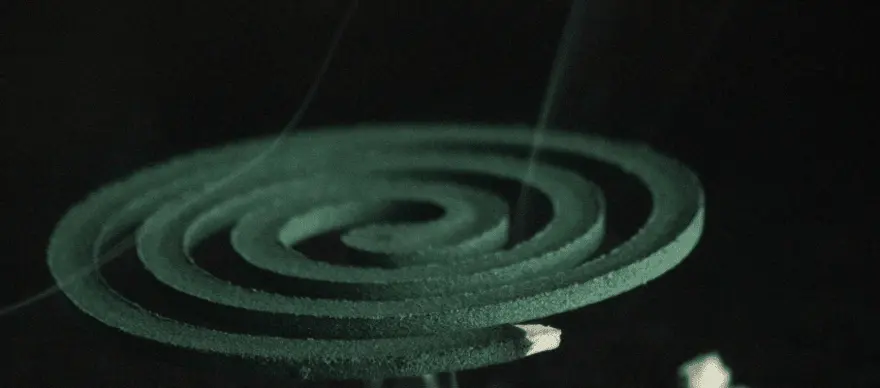Health Wellness
Malaria: Sign, Symptoms, Causes, Types and Treatment
22461 Views
0

What Is Malaria?
Plasmodium parasite is the causative agent of malaria. It is transmitted to humans by the bite of an infected Anopheles mosquito. As per the latest report of ICMR or Indian Council of Medical Research published in December 2021, India saw about 4.2 million malaria-affected patients and around 7400 deaths. Thus, in South-East Asia, specified by WHO or World Health Organisation, India contributed to almost 82% of malaria cases and deaths.
Causes of Malaria
When a female Anopheles mosquito feeds on someone who already has malaria, it gets infected. The next time it bites you, it may transfer the single-celled malaria parasite, Plasmodium, into your body. These parasites, on entering your body, travel down to the liver. Certain types of this parasite may lie dormant in the body for over a year. Then, these parasites mature and leave the liver while infecting the body's red blood cells, and you start developing the symptoms of malaria.
After you get infected with malaria, when uninfected malaria bites you during this transmission cycle, it will also get infected with the malaria parasites in your body. This way, it will keep spreading the disease to whoever it bites.
When these parasites affect your red blood cells, other people may get exposed to the infected blood can and catch malaria. These transmissions can occur between a mother and unborn child, sharing needles for injection, blood transfusion, etc.
Malaria Symptoms
The signs and symptoms of malaria usually start appearing within six to fifteen days after you get infected. The symptoms can be mild or severe, depending on the parasite type. Sometimes, people don't show any signs or feel sick for a year after being infected with the mosquito bite. This happens when the parasites live in your body for more than a year without causing any symptoms.
Common signs of malaria are:
- Very high fever and sweating
- Chills
- Muscle ache and headache
- Fatigue
- Chest pain, difficulty in breathing, cough
- Nausea, diarrhoea, vomiting
Severe signs and symptoms of malaria include
- Jaundice and anaemia
- Convulsions
- Stools with blood
- Seizure
- Kidney failure
- Abnormal and sudden reduction in blood sugar level
- Dark urine
- Trouble in breathing
- Confusion
Types of Malaria Parasite
Maria can be of five types depending on the types of plasmodium parasite that has caused infection.
- Plasmodium vivax
- Plasmodium ovale
- Plasmodium malariae
- Plasmodium falciparum
- Plasmodium knowlesi
Among these five, plasmodium vivax and plasmodium falciparum are common in India. The latter multiplies rapidly, leading to excessive blood loss, clogging the blood vessels, leading ischaemic damage of organs.
On the other hand, Plasmodium vivax can stay dormant for many months or even years after the mosquito bite. But suddenly, it rises and starts to infect the blood, showing the symptoms mentioned above.
Diagnosing Malaria
Once you start to feel sick, visit the doctor as soon as possible. Your physician can examine you and ask for a blood test to detect the presence of a parasite. Also, inform them about your travel history to help them better understand your health risks. The blood tests help the doctor to diagnose malaria, find the type of plasmodium causing infection and the treatment course.
The Blood Tests Can be of Different Types:
- Peripheral blood smear examination: Thick and thin blood smears are prepared from patients' blood, stained and observed under a microscope. Malarial parasites can be detected and speciated by this test. This is considered the gold standard test for diagnosis of malaria.
- Molecular test like PCR: If the blood smear report is not conclusive, doctors can ask for a molecular test to detect the presence of a parasite. This test has the best sensitivity among all available tests for malaria.
- Rapid antigen test which detects parasite’s enzyme or antigen. Malarial Antigen (Vivax & Falciparum) Detection test is easy to perform and can differentiate the two common types of plasmodium species
Treatment
Treating malaria during the early stages will help you recover better. However, if left untreated for a long time, malaria can become life-threatening. Moreover, it can become even more severe if infected with the P. falciparum parasite. Therefore, doctors prescribe antimalarial drugs, such as:
- Hydroxychloroquine or Chloroquine – This medication is effective if the malaria symptoms are not severe.
- Atovaquone-proguanil – This combination is more suitable for treating malaria in children or people in areas where chloroquine does not work.
- Artemisinin-based therapy – Here, doctors combine two different medicines to fight the milder symptoms.
- Artesunate – In case of severe symptoms, health experts give artesunate for the first day and then follow artemisinin-based therapy for three days.
Nevertheless, in certain instances, the prescribed medicine may not help to clear the infection due to the parasite's resistance to the drugs. This is when your doctor either changes your medication or prescribes more than one medicine to treat your case based on the signs of malaria.
Apart from medications, other treatments include:
- Supportive care
- Hospitalisation
- Intensive care for severe malaria
This treatment period may last for about two-three days. The medications or treatment length depends upon factors like:
- The types of malaria and their symptoms
- The severity of the symptoms
- Antimalarial drug history of the person
- For pregnant women
In most cases, malaria is cured and does not lead to severe consequences if you go to your doctor at the right time. So, keep the symptoms of malaria in mind, and visit your doctor at once. If any of them show, get all the tests done to start your treatment. And also, sleep under mosquito nets, wear proper clothing and use mosquito-eliminating sprays to stay away from mosquito bites.













1701259759.webp)









 WhatsApp
WhatsApp